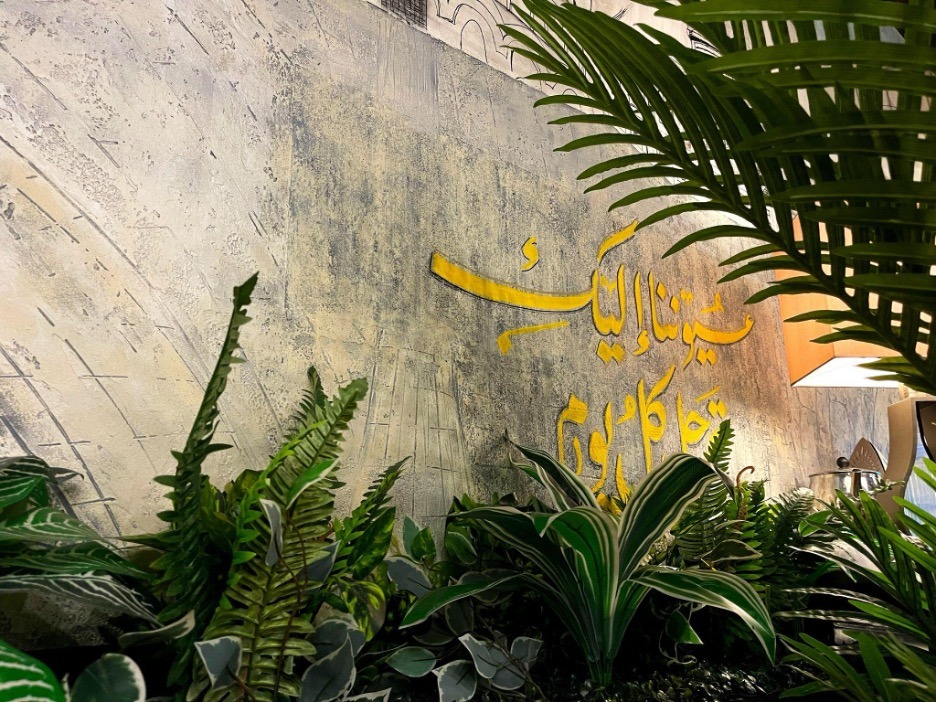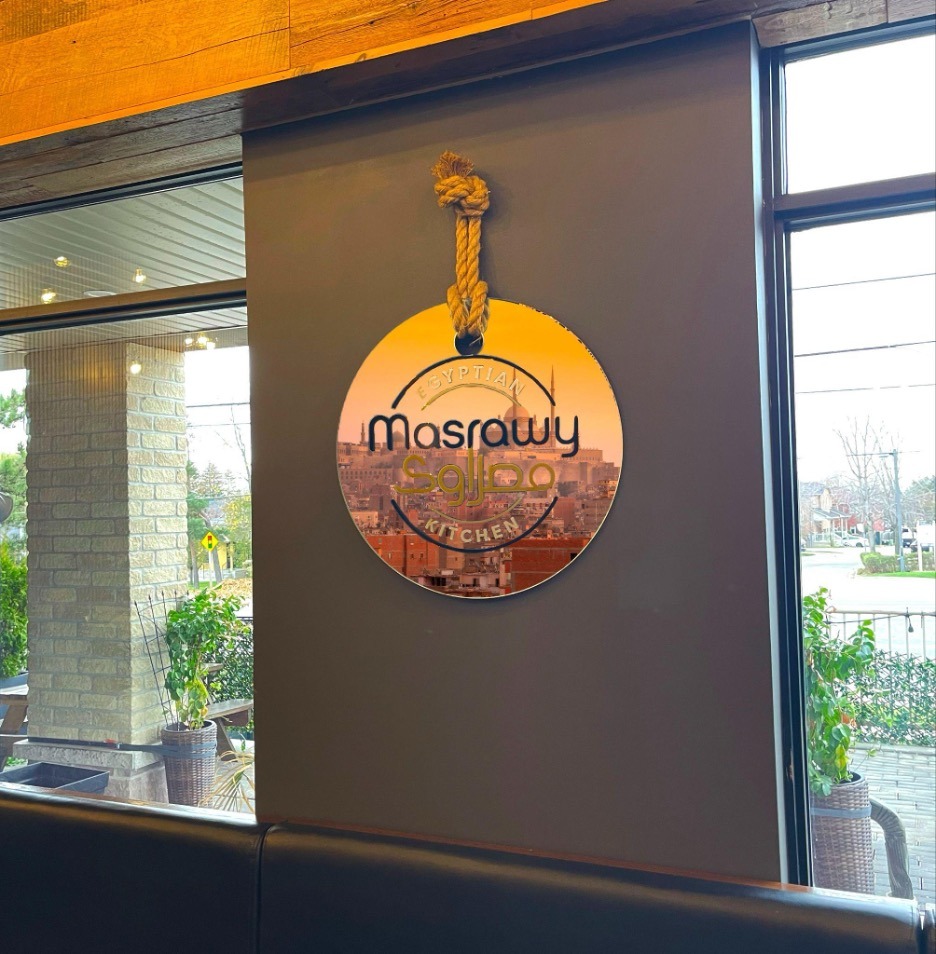Mississauga’s tables are a passport to a Middle Eastern past

Nestled in the heart of Mississauga’s unassuming strip plazas, two hidden culinary gems open doors not just to meals, but to entire worlds. Bait Sitty and Masrawy Egyptian Kitchen transcend the role of restaurants - they are gateways to the Middle East, where every bite tells a story and every aroma carries a memory. These aren’t merely dining experiences; they are voyages of the soul, where culture, resilience, and identity are served on every plate.
Preserving Heritage, One Dish at a Time
Stepping into Bait Sitty, whose name translates to ‘grandma’s house’, feels like being embraced by the loving arms of history. The air is thick with the comforting scent of za’atar and cardamom, a heady perfume that pulls you through generations of Palestinian tradition. The walls, adorned with embroidered tatreez cushions and signs bearing the names of Palestinian cities, whisper tales of a homeland unyielding in the face of time and trials.
For Alaa Daama, the head chef and co-owner, Bait Sitty is more than a restaurant; it’s a tapestry of memory and preservation. “The main purpose was for me to uphold the identity of the Palestinian cuisine,” Daama says, his voice carrying the weight of generations. “These dishes have history. Every single dish has a story behind it - a long, long time ago.”
Musakhan, the national dish of Palestine, made with freshly pressed olive oil, caramelized onions, sumac, and roasted chicken, evokes the mountain groves of Palestine. “In the season of the olives,” Daama recalls, “families gather to make this dish. It’s a tradition born in the mountains when they would light wood fires during the olive harvest.” Each ingredient, from the sumac to the olive oil, is imported from Jenin, ensuring authenticity that transcends borders.
Even the clay plates and embroidered fabrics that adorn the restaurant have been meticulously sourced from the West Bank. “As soon as you walk in, you feel like home,” Daama says. And indeed, the warmth of Bait Sitty feels like stepping into a sanctuary; a reminder of the comforts of family, no matter how far away.

Masrawy: A Bridge Between Cultures
Just a few blocks away, Masrawy Egyptian Kitchen offers its own journey, this time to the bustling streets of Egypt. The moment you step inside, the tiled patterns of Egyptian ceramics catch the eye, while the soft strains of Arabic music carry you to an outdoor courtyard. The scent of garlic, lentils and freshly baked bread fills the air, mingling with the laughter of staff and customers.
Mohamed Saleh, Masrawy’s owner, dreamed of creating a space where food could bridge cultures. “Through food, we can showcase so much of our culture,” Saleh says. His dishes, from creamy molokhia to koshari, carry the essence of Egypt’s diversity and resilience. “Koshari is the people’s food,” he explains. “It’s completely vegetarian, affordable, and full of energy. It represents the ingenuity and strength of Egyptians.”
For Saleh, Masrawy is not just a restaurant—it’s a cultural ambassador. “When you’re here, you’re listening to our music, you’re feeling our vibe. For that hour and a half, you’re not in Mississauga anymore. You’re in Egypt,” he says. The staff, trained to cook with heart and soul, ensure that every meal is a testament to Egyptian hospitality. “Egyptians are known for showering guests with love and care. We replicate that experience for everyone who walks through our doors.”
A Taste of Resistance
For both Daama and Saleh, food is a form of resistance. It is a way to combat erasure, to preserve stories and traditions that might otherwise be lost. The olive oil at Bait Sitty tells the story of Palestinian farmers, while the lentils and rice in Masrawy’s koshari are symbols of a nation’s enduring spirit.
“When you taste our olive oil or spices, you’re tasting Palestine,” Daama explains.
Saleh echoes this sentiment, saying, “Every meal here has history and passion. It’s not just food; it’s a legacy.”
This connection to heritage resonates deeply with customers like Ghada Sasa, a Palestinian-Jordanian living in Canada. For her, dining at these restaurants is like traveling through time. “When I eat musakhan or koshari, I feel connected to my roots,” Sasa shares. “These dishes remind me of my grandparents’ stories, their struggles, and their triumphs. It’s like being back in my homeland, even though I’m thousands of miles away.”
The Power of the Table
Both Bait Sitty and Masrawy Egyptian Kitchen foster a sense of community that transcends individual dining experiences. At Bait Sitty, customers and staff mingle as though they’re old friends, dancing to the rhythms of Palestinian music. At Masrawy, diners are showered with Egyptian hospitality, where every gesture, from a warm greeting to a perfectly prepared dish, speaks of generosity.
“You deserve to have something good,” Daama emphasizes, highlighting the importance of making diners feel at home.
Saleh agrees, adding, “This is not just about food. It’s about showing who we are - our personalities, our love for life.”
An Invitation to the Middle East
As night falls in Mississauga, the glow from the kitchens of Bait Sitty and Masrawy Egyptian Kitchen beckon, guiding travelers to worlds far beyond the city’s borders. Inside, laughter mingles with the hum of Arabic music, and the aromas of musakhan and koshari swirl in the air like memories made tangible.
These restaurants are more than places to eat; they are places to belong, to connect, and to remember. For a moment, the barriers of geography and history dissolve, and you are transported - not by plane, but by the power of food and the language of the soul.
As Sasa so beautifully puts it, “These places remind us who we are. They tell us that no matter where we go, our culture will always be with us.”
Post a comment